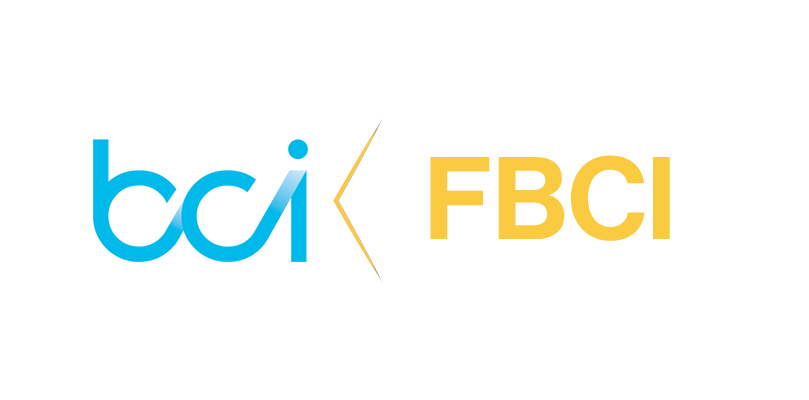Our most prestigious membership grade. Fellows have an advanced level of competency; they are industry leaders and innovators and make a significant voluntary contribution to the development of the institute and profession.
The FBCI membership grade is designed for professionals/practitioners with the knowledge and skills to reformulate or develop original thinking in business continuity and resilience and can apply advanced or specialist understanding to solve complex problems.
To apply for FBCI membership, there are two entry routes: standard and experiential.
Routes to FBCI:
Standard route to FBCI
- Applicants need to hold a current MBCI membership (no limit on how long grade has been held).
- Applicants must have completed at least 20 hours of CPD in the past 12 months.
- Applicants must have contributed voluntarily in any of the nine Community Contribution areas to The BCI and or the wider business continuity community within the last five years.
- Applicants must supply evidential statements against six Competency areas:
- Three evidential statements must be from any of the Leadership & Management Competency areas.
- Three evidential statements must be from any of the Professional Practice Competency areas.
What documents do FBCI Applicants have to submit if applying through the Standard route?
- Current CV/Resume – detailing all roles and responsibilities to date.
- Candidate Self-Assessment form.
- References to support your application.
- Record CPD via your online profile - all the CPD undertaken within the past year to keep your knowledge and skillset up to date, this must amount to at least 20 hours.
- Community Contribution Form – detailing all the voluntary contributions you have made to The BCI and/or the wider community within the last five years - 30 of these hours must be within the past 12 months. Full guidance is given on the Community Contribution form.
- FBCI Application form – Applicants must supply evidential statements against six of the 11 Competency areas:
- Three evidential statements must be from the Leadership & Management Competency areas one to five.
- Three evidential statements must be from any of the Professional Practice Competency areas six to eleven.
For each competency that you complete, your evidence must demonstrate that you meet the ‘Advanced’ competency level.
The evidential statements must be written in terms of the STAR technique; describing the Situation, the Tasks, Actions, and Results in which the competency was demonstrated.
Full guidance is available on the FBCI Application form.
Experiential route to FBCI
- Applicants must have completed at least 20 hours of CPD in the past 12 months.
- Applicants must have contributed voluntarily in any of the nine Community Contribution areas to The BCI and/or the wider business continuity & resilience community within the last five years.
- Applicants must supply evidential statements against all 11 Competency areas.
What documents do FBCI Applicants have to submit if applying through the Experiential route?
- Current CV/Resume – detailing all roles and responsibilities to date.
- Candidate Self-Assessment form.
- References to support your application.
- Record all CPD on the CPD Activity form - This CPD must amount to at least 20 hours, be within the past year, and must show how you have kept your knowledge and skillset up to date.
- The Community Contribution Form – detailing all the voluntary contrcontributionshave made to The BCI and/or the wider community within the last 5 years - 30 of these hours must be within the past 12 months. Full guidance is given on the Community Contribution form.
- FBCI Application form - Applicants must supply evidential statements against all of the 11 Competency areas.
Please note that all 11 competencies must be at least at the ‘Comprehensive’ level as described in the BCI Competency Framework. Plus:
- At least three of the Leadership & Management competencies (areas one to five) must be at the ‘Advanced’ level as described in the BCI Competency Framework.
- At least three of the six Professional Practice (areas 6-11) Competencies must be at the ‘Advanced’ level as described in the BCI Competency Framework.
What style should all Applicants use to supply evidential statements?
The evidential statements must be written in terms of the STAR technique; describing the Situation, the Tasks, Actions and Results in which the competency was demonstrated.
Full guidance is given on the FBCI application form.
Community contribution areas
Whether you apply through the standard or experiential route to FBCI, Significant Voluntary Contribution is the key. The Panel will be looking for evidence of the activities undertaken by you, which have raised the understanding and awareness of business continuity management, including Strategic thinking and Thought Leadership.
You must be able to prove that you have voluntary giving back to a community within the last five years, in any of the nine Community Contribution Areas, and have contributed at least 30 hours to a community in the last 12 months. Voluntary contribution must have been made outside of any employed role.
What are the Community Contribution areas?
There are nine Community Contribution Areas that applicants can apply under. Applicants must show evidence of at least 120 hours of contribution to a community within the last 5 years, in any of the nine Community Contribution Areas and have contributed at least 30 hours to a community in the last 12 months.
Community Contribution Areas:
- Carried out pro bono work related to Business Continuity or Organizational Resilience for a community or not-for-profit organization.
- Presented on the business continuity or organizational resilience discipline or career with a recognized education institute such as a school, college, or university.
- Mentored people through the BCI mentoring programme or an alternative verifiable mentoring process.
- Published multiple articles on business continuity and or organizational resilience subjects in recognized publications or via social media, e.g. magazines, Disaster Recovery Journal, Continuity Insights, BCI website, LinkedIn, etc.
- Have supported key BCI Thought Leadership programmes, e.g., Examination development, GPG updates, BCI Course development, BCAW (e.g. webinars), 2020 / Future Practice Groups, etc.
- Have significantly supported the development of the industry or Institute outside of BCI-led activities, e.g. supporting the development of key industry standards, raising awareness through promotional events and activities, driving membership growth or contributing to an industry working party, e.g. DRJ EAB, ISO Technical Committee, DRII committee, ACP board, etc.
- Member of BCI Conference Organizing Committee or Stream Leader. Presenter at BC or Organizational Resilience-themed Conference / Event, e.g. BCI World Conference, BCI Regional Conferences, DRJ, CI, etc.
- Served as a BCI Membership Auditor, BCI Membership Assessor, or BCI Awards Judge.
- Contributed to the active management or Governance of the BCI, such as in one or more of these roles: BCI Main Board member; Chair or Committee member of a BCI Chapter or SIG, 2020 / Future Practice Group Leader, BCI Conference Organizing Group Leader. Other examples can be provided.
Beyond FBCI - Continue your professional development journey through:
- Volunteering
- Speaking at conferences
- Contribute to BCI research and content
Still unsure which membership type is right for you? Get in touch!
Our membership team will get back to you with advice and guidance on your next steps.


